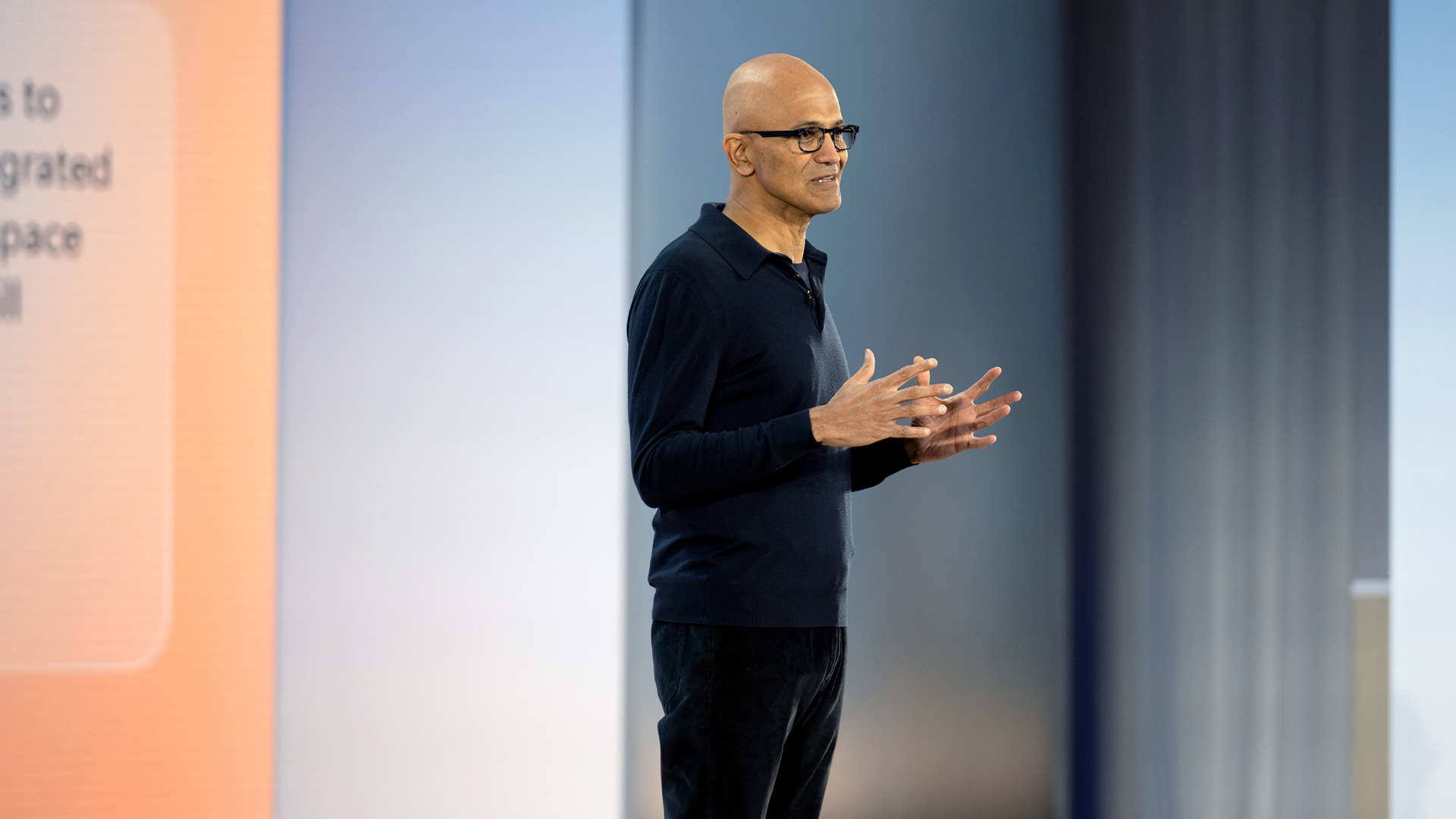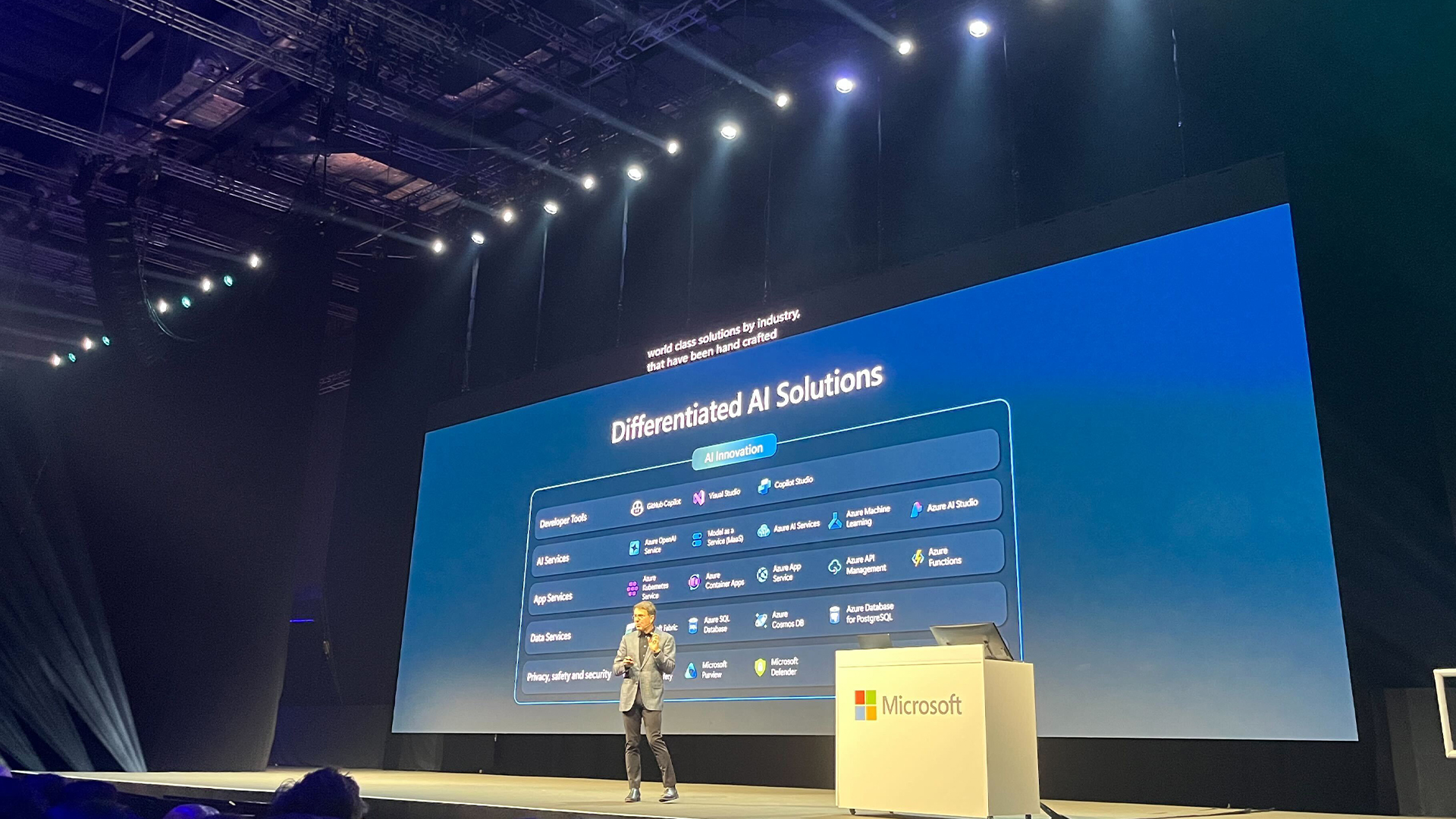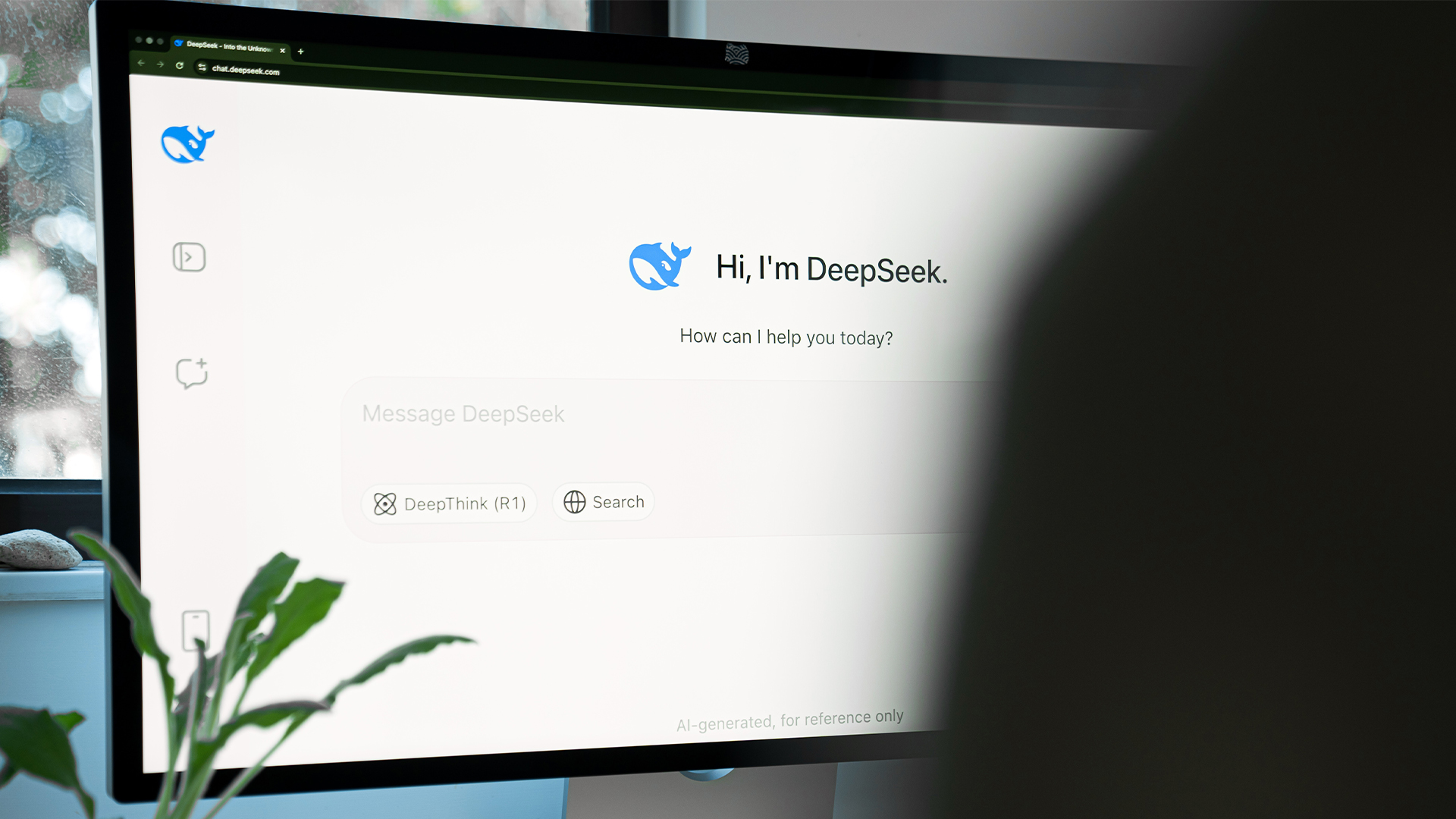Microsoft: Sluggish AI adoption could cost the UK economy £150 billion
A new report carried out for Microsoft finds enormous opportunities from increased use of AI, so long as certain barriers are overcome


AI and cloud technology could increase the UK's GDP by £550 billion over the next 10 years providing the country deals with certain bottlenecks, according to Microsoft.
Produced for the company by independent consultancy Public First, the report suggests that prompt investment in digital technologies and skills could have an average societal return on investment (ROI) of more than 5:1 by 2025.
Conversely, delays to AI roll-outs over the next five years could cost the UK £150 billion by 2035.
"The UK risks foregoing significant economic gain if we let progress slip over the next five years," said Hugh Milward, vice president for corporate, external and legal affairs at Microsoft.
"Planning, power, and permitting are critical to unlocking the sector’s ability to invest quicker and make the most of the opportunity for the UK."
Infrastructural issues were identified as the first key bottleneck in the report, which found that the UK has poorer capacity than other countries with just 1.3% of global computing capacity.
Meanwhile, commercial awareness was also flagged as an issue, with almost a third of SMEs revealing they have yet to shift to the cloud. Similarly, nearly half are still to adopt AI tools or applications in the workplace.
Get the ITPro daily newsletter
Sign up today and you will receive a free copy of our Future Focus 2025 report - the leading guidance on AI, cybersecurity and other IT challenges as per 700+ senior executives
The third bottleneck identified by the report is a lack of skilled staff, with two-fifths of businesses struggling to find workers with good digital skills, particularly in traditional digital roles such as data analytics or IT.
In addition, the need for workers with new AI-specific skills, such as prompt engineering, is likely to rise. It will be essential to offer retraining and upskilling opportunities in AI-related fields over the next decade, the report found.
Microsoft, of course, believes it has the solutions. Last year, it announced a £2.5 billion investment in AI skills, security, and data center infrastructure across the country. As part of the move, the tech giant said it plans to procure more than 20,000 of the most advanced graphics processing units by 2026.
At the same time, the government invested £1.5 billion in computing capacity and committed to building three new supercomputers by 2025.
A key takeaway from the report centered around the use of AI in the public sector.
Microsoft said the strategic use of the technology could save the public sector £17 billion by 2035, with the projected benefits of AI on public sector occupations only around 15% less than for roles in the private sector.
No widespread AI job losses expected
The report is optimistic when it comes to AI skills, finding that the technology is unlikely to create unemployment in the short-to-medium term, but could instead make individual workers more productive, and lead to new employment opportunities.
RELATED WHITEPAPER

Contrary to common fears, the report concluded that AI could help employees at the bottom or middle end of the wage distribution table to catch up with higher earners.
However, the UK will have to deal with relatively low levels of compute capacity, significant delays in building new infrastructure, and a long tail of SMBs who haven't yet fully adopted key background technologies such as cloud.
"The next five years are likely to be the most important for putting in place the right enablers to ensure the UK can take full advantage of AI," it said.
Emma Woollacott is a freelance journalist writing for publications including the BBC, Private Eye, Forbes, Raconteur and specialist technology titles.
-
 Bigger salaries, more burnout: Is the CISO role in crisis?
Bigger salaries, more burnout: Is the CISO role in crisis?In-depth CISOs are more stressed than ever before – but why is this and what can be done?
By Kate O'Flaherty Published
-
 Cheap cyber crime kits can be bought on the dark web for less than $25
Cheap cyber crime kits can be bought on the dark web for less than $25News Research from NordVPN shows phishing kits are now widely available on the dark web and via messaging apps like Telegram, and are often selling for less than $25.
By Emma Woollacott Published
-
 Microsoft launches new security AI agents to help overworked cyber professionals
Microsoft launches new security AI agents to help overworked cyber professionalsNews Microsoft is expanding its Security Copilot service with new AI agents to help overworked IT teams deal with surging security threats.
By Bobby Hellard Published
-
 ‘The entire forecasting business process changed’: Microsoft CEO Satya Nadella says Excel changed the game for enterprises in 1985 – he’s confident AI tools will do the same
‘The entire forecasting business process changed’: Microsoft CEO Satya Nadella says Excel changed the game for enterprises in 1985 – he’s confident AI tools will do the sameNews The Microsoft CEO says we need to change how we measure the value of AI
By George Fitzmaurice Published
-
 Microsoft exec touts benefits of AI productivity gains
Microsoft exec touts benefits of AI productivity gainsNews Microsoft CCO Judson Althoff said the company is unlocking significant efficiency gains from AI tools internally.
By George Fitzmaurice Published
-
 ‘We’ve created an entirely new state of matter’: Satya Nadella hails Microsoft’s 'Majorana' quantum chip breakthrough
‘We’ve created an entirely new state of matter’: Satya Nadella hails Microsoft’s 'Majorana' quantum chip breakthroughNews Microsoft has unveiled a new chip it says could deliver quantum computers with real-world applications in ‘years, not decades'.
By Emma Woollacott Published
-
 Microsoft says AI tools such as Copilot or ChatGPT are affecting critical thinking at work – staff using the technology encounter 'long-term reliance and diminished independent problem-solving'
Microsoft says AI tools such as Copilot or ChatGPT are affecting critical thinking at work – staff using the technology encounter 'long-term reliance and diminished independent problem-solving'News Research from Microsoft suggests that the increased use of AI tools at work could impact critical thinking among employees.
By Nicole Kobie Published
-
 The DeepSeek bombshell has been a wakeup call for US tech giants
The DeepSeek bombshell has been a wakeup call for US tech giantsOpinion Ross Kelly argues that the recent DeepSeek AI model launches will prompt a rethink on AI development among US tech giants.
By Ross Kelly Published
-
 OpenAI unveils its Operator agent to help users automate tasks – here's what you need to know
OpenAI unveils its Operator agent to help users automate tasks – here's what you need to knowNews OpenAI has made its long-awaited foray into the AI agents space
By Nicole Kobie Published
-
 'People use it much more than we expected': Sam Altman says OpenAI is 'losing money' despite launching $200 ChatGPT Pro subscription
'People use it much more than we expected': Sam Altman says OpenAI is 'losing money' despite launching $200 ChatGPT Pro subscriptionNews OpenAI CEO Sam Altman admitted the company is still "losing money" despite launching a $200 per month Pro subscription tier for ChatGPT
By Nicole Kobie Published